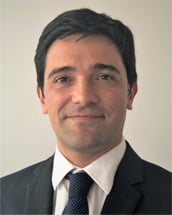In brief
On 3 August 2021, Resolution No. 742/2021 (“Resolution“) was published, whereby the Secretary of Energy (“Secretary“) issued new measures to be applied in favor of the successful bidders of the “RenovAr Program” (“Program“) projects delayed in obtaining commercial authorization or failing to provide the committed energy supply.
These measures, subject to certain requirements, involve the following incentives: (i) reduction of penalties; and (ii) extension of deadline to achieve commercial authorization.
In more detail
The resolution amended Resolution 285/2018 of the former Ministry of Energy and Mining (“Resolution 285“) to stimulate the execution of the Program’s contracts that are delayed in obtaining commercial authorization or are in operation without reaching the committed energy supply, thus contributing to achieve the goals of power consumption from renewable sources set by the state.
The most relevant aspects of the Resolution are as follows:
- Contracts covered: supply contracts executed under the Rounds of the Program No. 1, 1.5, 2 and 3, and those entered into under the Resolution of the former Ministry of Energy and Mining 202/16 (“Contracts”)
- New term to obtain commercial authorization: 360 additional calendar days (Resolution 285 stipulated 180 calendar days), only if those projects:
- evidence to the undersecretary of Electric Energy (“Undersecretary“) construction progress of at least 70%
- increase the contract performance guarantee, if the projects failed to comply with the contractual milestones prior to the commercial authorization
- increase the contract performance guarantee up to 30% of the original amount agreed, in accordance with other requirements under Art. 2 b of the Resolution.
- Fines
- Addition of Art. 3 Bis to Resolution 285 sets the new guidelines for imposing fines to the projects based on the progress of their works.
- – For projects with commercial authorization achieved within 180 days after the committed term and have not requested an extension, the daily fine for each megawatt of contracted capacity could be reduced up to 70%.
- – Projects with no commercial authorization as of the date of publication of the Resolution and that have not requested an extension yet must replace the contract performance guarantee with a bank guarantee.
- Addition of Art. 3 Ter to the Resolution 285: The Wholesaler Electricity Market Administrator Company (CAMMESA) could recalculate the amounts of the fines already collected or in collection. These fines will be based on the amount resulting from the settlements of fines still pending collection, and according to Articles 1°, 3° and 3° Bis of the Resolution.
- Payment Method: The Resolution includes the option provided in Resolution 285 to pay fines in 12 or 48 installments. In addition, if the 48-installment option is chosen, the Resolution authorizes CAMMESA to deduct from the agreed monthly remuneration of the contract a penalty not exceeding 40%. Also, the Resolution establishes a new method to pay the remaining balance (Art. 1 of the Resolution).
- Addition of Art. 3 Bis to Resolution 285 sets the new guidelines for imposing fines to the projects based on the progress of their works.
- CAMMESA’s role: CAMMESA shall: (i) give notice to the projects covered by Art, 3 Bis; and (ii) inform the Undersecretary about the presentations filed and documentation related to the Resolution.
- Undersecretary’s role: The Undersecretary could issue the necessary and interpretative acts to create the guidelines of the Resolution.
Click here to access the Spanish Version.





